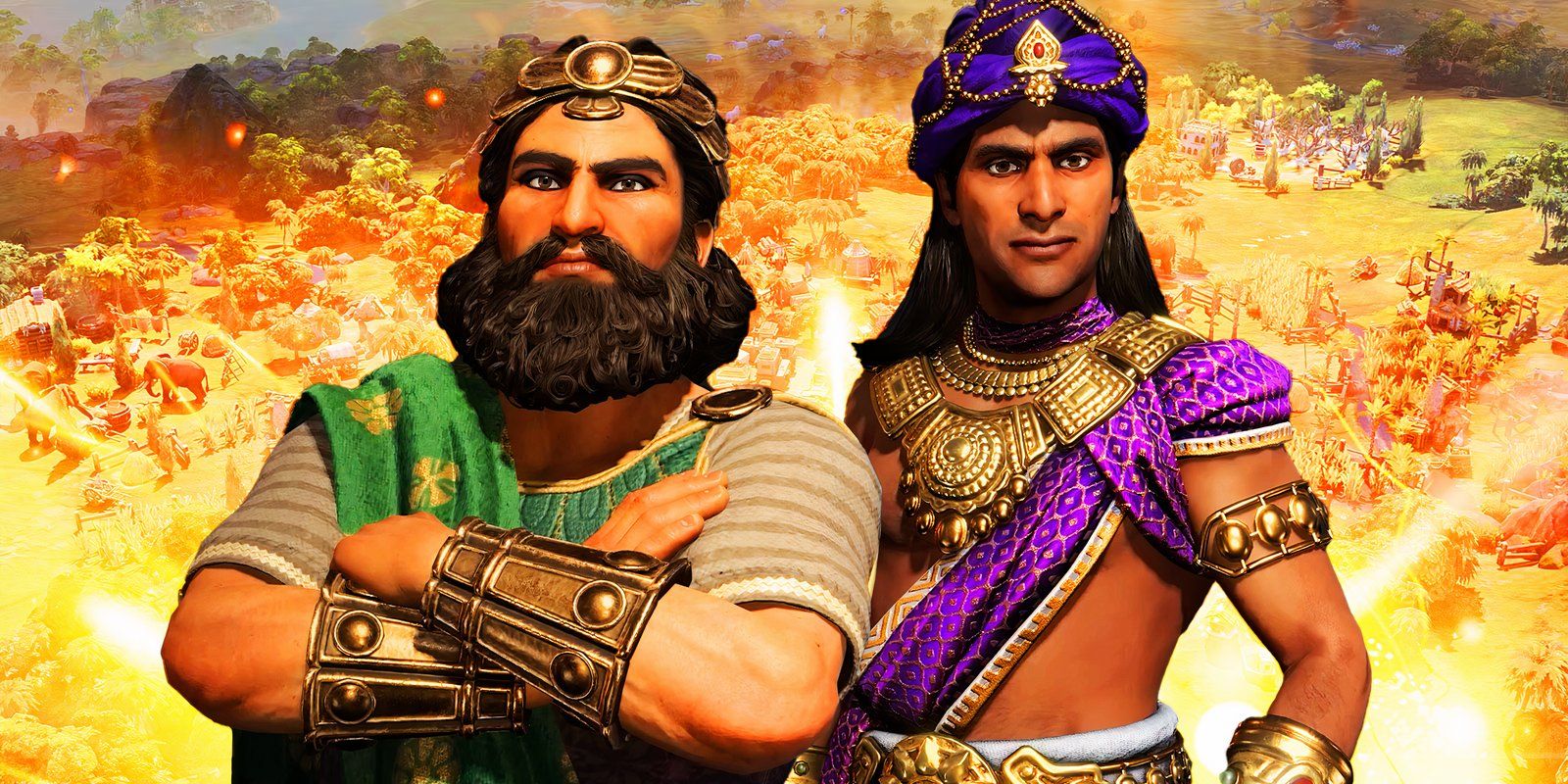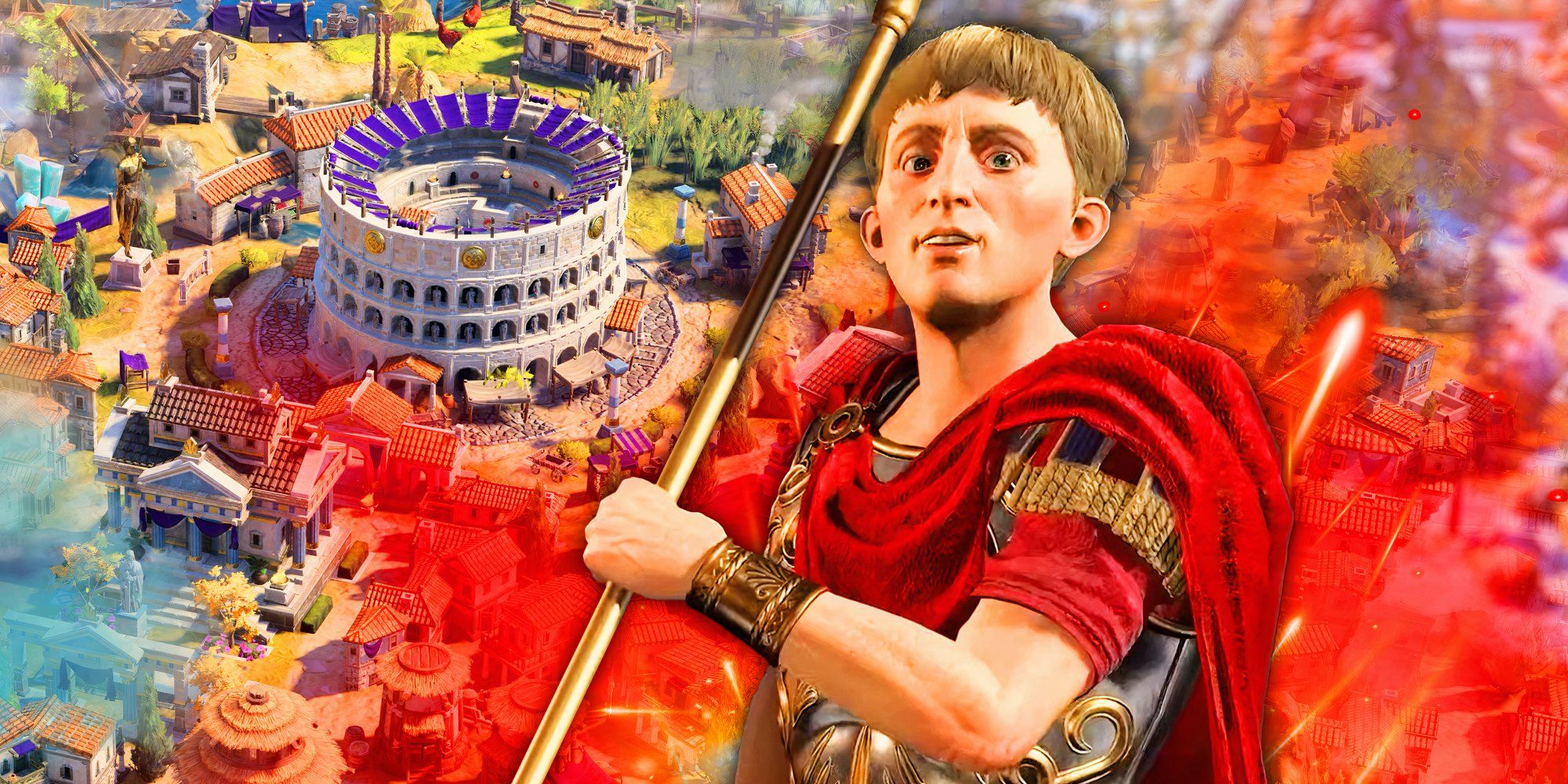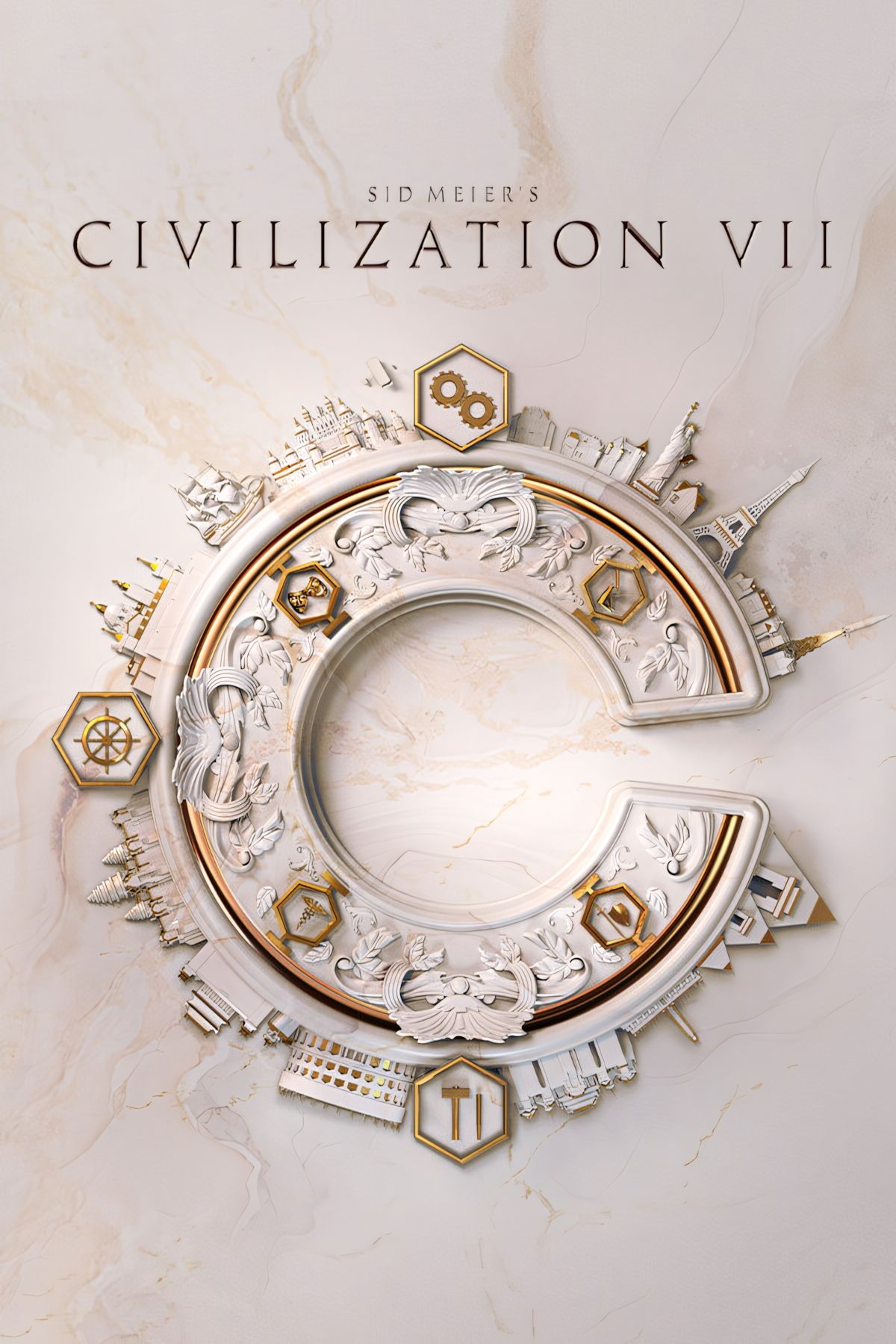Civ 7: Why It’s Weird You Can’t Play As One Civilization Across The Ages

Of the many new changes in Sid Meier’s Civilization 7 to some of the classic features and mechanics in the franchise, arguably the largest departure is the changing of civilizations across the Ages. Before Civ 7, there was always a “one leader, one civ” structure, and players could expect to end the game with the civilization they chose from the beginning. Civ 7 aims to let players engage in a more fantasy-based approach to building an empire, where a new civilization is chosen at the turn of each Age. While this idea certainly has some merit and gives players more sense of agency, it also feels like a bit of a weird decision.
While a majority of the changes to gameplay result from clear issues in previous games, such as high levels of micromanagement, snowballing, etc., the civilization-changing mechanic doesn’t seem to directly address any of these. The gameplay choice feels a bit arbitrary, designed to give players more sense of control over how their empires are defined as the game progresses. In theory, this idea makes a lot of sense. But in practice, it’s simply strange to lead Buganda with someone like Benjamin Franklin. There is a major disconnect between civs and leaders that ultimately might break a player’s suspension of disbelief.
It’s Always Been One Leader, One Civ
Are Civilizations The Defining Feature Of An Age?
There are certain aspects of the Civilization franchise that many players would agree are/were problematic. Civilization 7 does a great job at addressing some of those major issues, and it’s clear that the game has taken major steps forward in terms of what does and doesn’t work. The shift to changing civilizations comes as a result of the restructuring of the game into chapters, or Ages. Each Age is meant to feel unique and different from the others, and there are quite a few Age-specific features that accomplish this, such as Civ 7‘s Distant Lands in the Exploration Age or air combat in the Modern.

Related
Civ 7: All Antiquity Age Unique Civic Trees & How To Use Them
Civilization 7 has ten Antiquity Age civilizations, each with their own unique Civic Trees that provide one-of-a-kind bonuses and effects.
However, it seems like the decision to force players to choose and change civilizations is a way of introducing variety to each Age in order to make it feel more unique. It begs the question: without civilization switching, do the Ages feel distinct enough on their own? Arguably, Civ 7 uses civilization switching to give players the illusion of variety, while the Ages themselves aren’t really all that different from one another without this feature. There doesn’t seem to be any basis for forcing players to switch between civilizations, as sticking with one leader and one civilization was never a complaint or problem before.
The decision also seems backwards. Thinking about how a civilization develops, the thread that connects any civilization back to its roots is not an individual leader. It’s the other way around – leaders change as time goes by, while the core civilization evolves (even if its name changes). So the decision is confounding for multiple reasons, and no matter what the developers’ intentions were with the system, the choice to divide leaders and their civilizations is a form of immersion-breaking that will take some getting used to for fans of past games.
Why It Feels Strange To Mix & Match
Is Fantasy More Important Than History?
The mix-and-match style of gameplay in Civilization 7 is not all bad, and it adds a layer of strategy that many players will enjoy. Each civilization does feel distinct, and there is a ton of depth to them that allows for a range of different playstyles. However, there are conflicting philosophies behind their implementation that are glaringly obvious when a player reaches the Modern Age with Pachacuti leading the Qing Dynasty, for example. Historical narratives and accuracy are important in Civ 7 until they aren’t. The “fantasy” behind building a unique empire takes precedent over any kind of historical logic.

Related
Civilization 7: All Major Changes To City Development, Explained
Civilization 7’s major changes to city development include Unique Quarters, Overbuilding, Specialists, and new building types.
Veterans to the franchise are not the only ones affected by the leader-civilization disconnect. Even if it’s a player’s first time playing a Civilization game, the initial setup will have them wondering why they have to pick a civilization at all – why exactly isn’t Catherine the Great automatically the leader of Russia? The game starts to steer players down certain paths depending on their selection of leader, and highlights geographic, historical, and strategic choices, and there are clear synergies between particular leader-civilization combinations. It just seems strange that playing as one civilization from start to finish simply isn’t (and won’t be) an option at all.
Single-Civ Gameplay Across All Ages Isn’t Likely
Will Playing As One Civilization Ever Happen?
While it would be nice to at least have the option to stick with one civilization throughout the entire game, it doesn’t seem likely that this is on the developer’s radar. The Ages structure is a core feature of the game, and a single-civ option might mean overhauling key mechanics and possibly introducing even more problems. Further, it’s unclear what this would even look like in practice. Would it involve adding Age-specific mechanics to each civilization, or possibly creating civilizations that more directly connect, similar to the current structure of the Han-Ming-Qing progression?

Related
Civ 7: How To Win An Economic Victory With Amina
To win an Economic Victory in Civilization 7, Amina can choose Aksum, Songhai, and Mughal for civilizations across the Ages.
Civilization 7 fans are probably going to have to rely on the modding community to develop some form of one-civilization mechanic, and it isn’t entirely clear when mods will even be an option. Until then, players will have to decide for themselves if changing between civilizations is really a make-or-break issue, or just a slightly weird feature for a game primarily rooted in an appreciation for history. For some, the decision to force civilization changes and detach leaders from their civs will feel like a solution to a nonexistent problem.
The reality is that the positive and enjoyable features of Civilization 7 easily compensate for any sense of broken immersion that might occur with the switching of civilizations. While some players might get hung up on the strangeness of a leader like Benjamin Franklin of the Egyptian Empire, most people are going to raise an eyebrow and move on. The fact you can’t play as one civilization is weird and will alienate a certain group, but is likely not going to matter once players get more familiar with Civilization 7’s gameplay.
World News || Latest News || U.S. News
Source link




